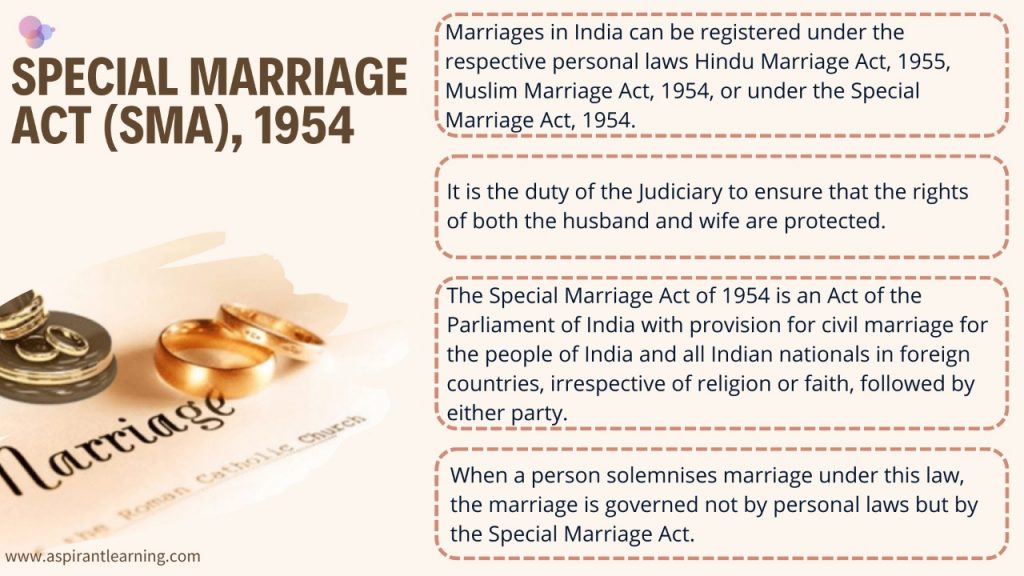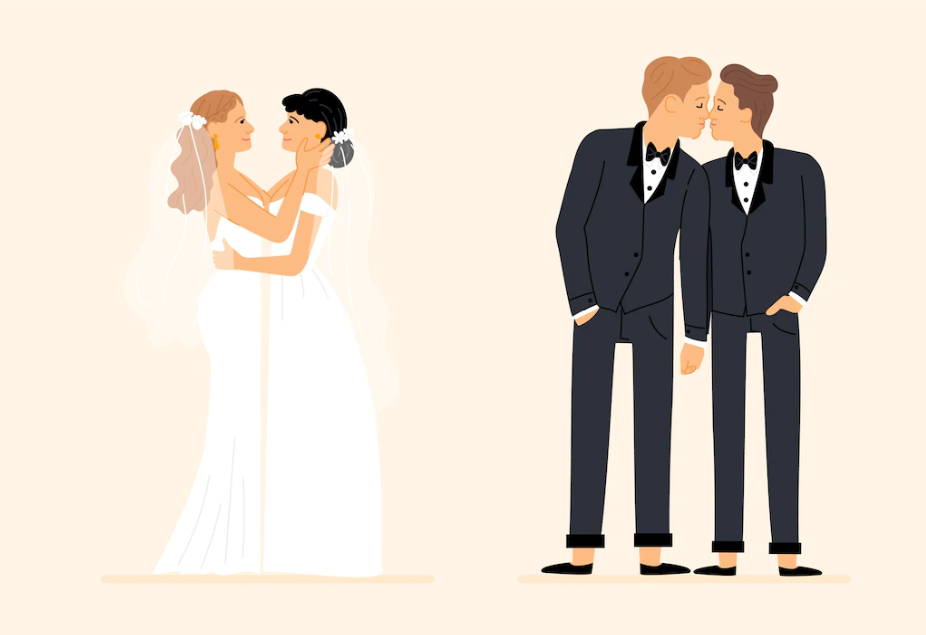News Highlights:
- The Centre has opposed the Supreme Court pleas seeking legal validation of Same sex marriage, citing traditional beliefs and values.
- Centre says in its affidavit that any change in a human relationship should come from the legislature and not from the court.
Key findings:
- The Government affidavit:
- Heterosexual marriage has been the norm throughout history and is “foundational to both the existence and continuance of the state.”
- Marriage in India is regarded as a “holy union,” a “sacrament,” and a “sanskar,” and is dependent on customs, rituals, practices, cultural ethos, and societal values.
- Any “deviation” from the “statutorily, religiously and socially” accepted norm in “human relationships” can only happen through the legislature and not the Supreme Court.
- Basis of Centre’s opposition:
- The 2018 Navtej Singh Johar judgment decriminalised homosexuality, but it did not mention/legitimise same-sex marriage.
- Same-sex marriage cannot be compared to a man and woman living as a family with children born out of the union.
- Registration of same-sex marriage would result in a violation of existing personal as well as codified law provisions.
- There is a “compelling interest” for society and the state to limit recognition to heterosexual marriages only.
- petitioners’ demands:
- Sought an interpretation of the Special Marriage Act, 1954 in a gender-neutral manner where a person is not discriminated against due to his sexual orientation.
- The Special Marriage Act of 1954 provides a civil form of marriage for couples who cannot marry under their personal law.

Same-sex marriage:
- About:
- Same-sex marriage, also known as gay marriage, is the marriage of two people of the same sex or gender.
- As of 2023, marriage between same-sex couples is legally performed and recognised in 33 countries, constituting some 1.35 billion people (17% of the world’s population), the most recent being Mexico.
- Adoption rights:
- Adoption rights are not necessarily covered, though most states with same-sex marriage allow those couples to adopt as other married couples can jointly.
- Scientific studies:
- Scientific studies show that the financial, psychological, and physical well-being of gay people is enhanced by marriage and that the children of same-sex parents benefit from being raised by married same-sex couples within a marital union recognised by law and supported by societal institutions.
- Social science research:
- Social science research indicates that the exclusion of same-sex couples from marriage stigmatises and invites public discrimination against gay and lesbian people, with research also repudiating the notion that either civilisation or viable social orders depend upon restricting marriage to heterosexual.
- Preventative measures:
- In contrast, 34 countries (as of 2021) have definitions of marriage in their constitutions that prevent marriage between couples of the same sex, most enacted in recent decades as a preventative measure.
Issues faced by LGBTQ+ Communities in India:
- Multiple forms of marginalisation:
- LGBTQ+ individuals may experience multiple forms of marginalisation – such as sexism, poverty, discrimination, social unacceptability or other factors – alongside homophobia or transphobia that negatively impact their mental health.
- Often, LGBTQ+ people lack access to basic services such as medical care, justice and legal services, and education.
- Family Reactions:
- Rejection and serious negative reactions kept many LGBTQ+ youngsters from telling their parents about their feelings.
- In a society bound by a rigid set of social and cultural norms that dictate the terms and conditions of education, career and marriage, the lack of family support can be a big blow to the mental and physical health of LGBTQ+ people.
- Negative stereotypes:
- LGBTQ+ people are labelled with negative stereotypes and made fun of, thereby robbing them of their goal of getting recognition and making them feel socially excluded.
- Socially Unrecognised:
- School uniforms, dress code and appearance, and access points for travel (including ticket booking forms, security screening and toilets) are often gendered.
- Frequently, LGBTQ+ individuals are forced to negotiate their gender identity in public while on public transportation.
- As a biological term, sex is always Male, female or transgender. However, as a social category, gender may vary.
Way Forward:
- The LGTBQ community needs an anti-discrimination law that empowers them to build productive lives and relationships irrespective of gender identity or sexual orientation and places the onus to change on the state and society and not the individual.
- Once members of the LGBTQ community “are entitled to the full range of constitutional rights”, it is beyond doubt that the fundamental right to marry a person of one’s own choice has to be conferred on same-sex couples intending to marry.
- More than two dozen countries have legalized same-sex marriage.
Pic Courtesy: Freepik
Content Source: The Hindu



